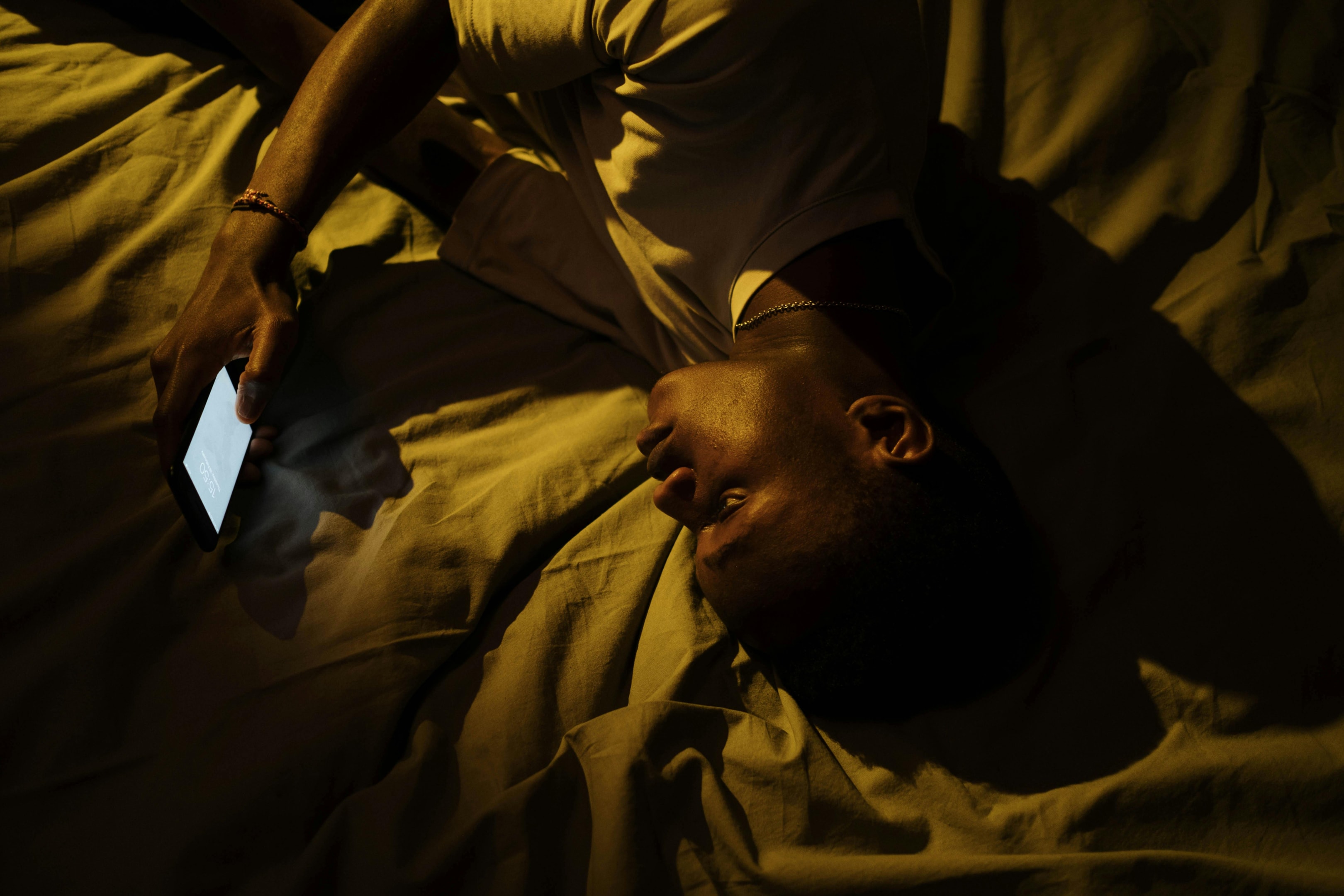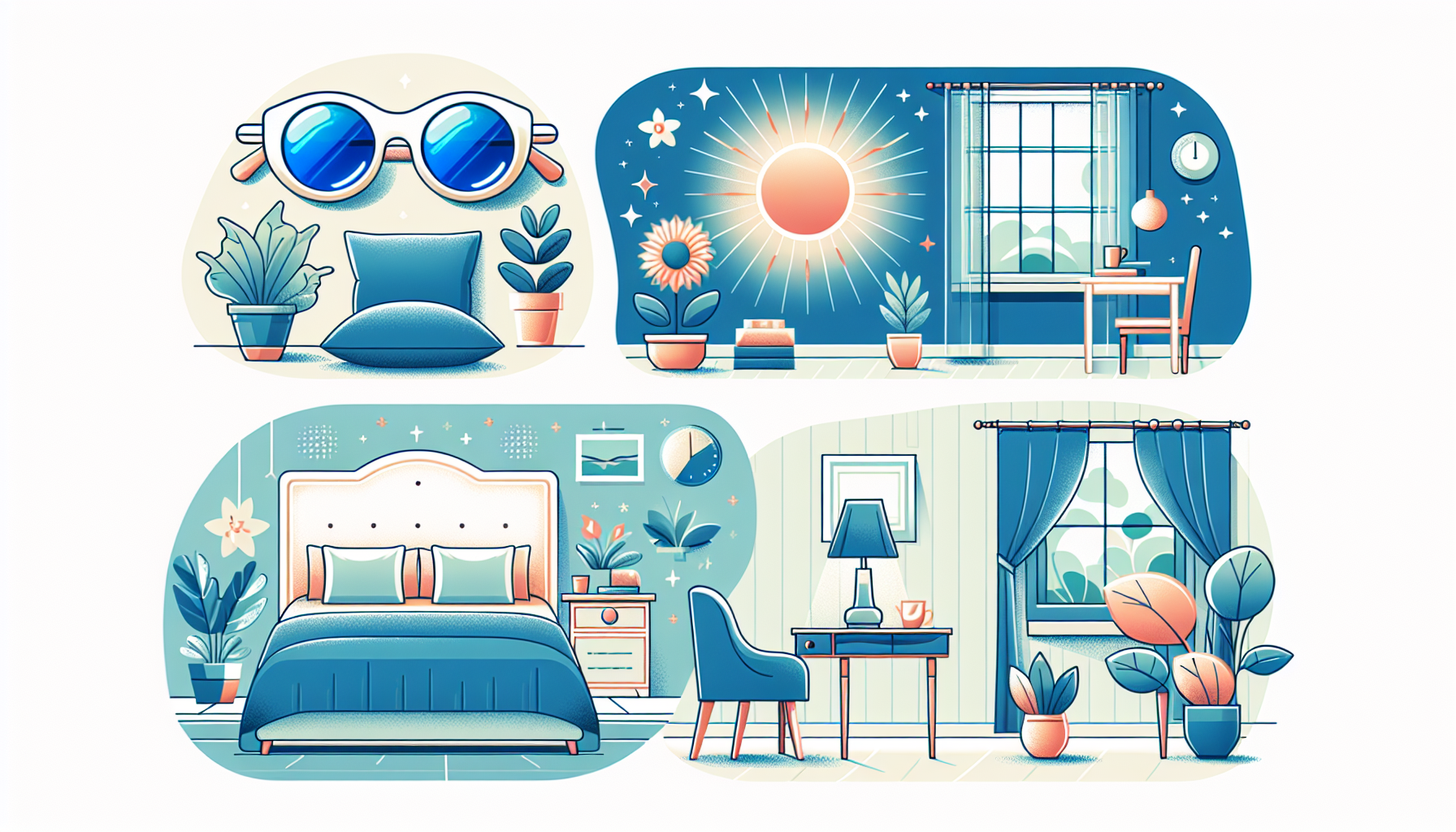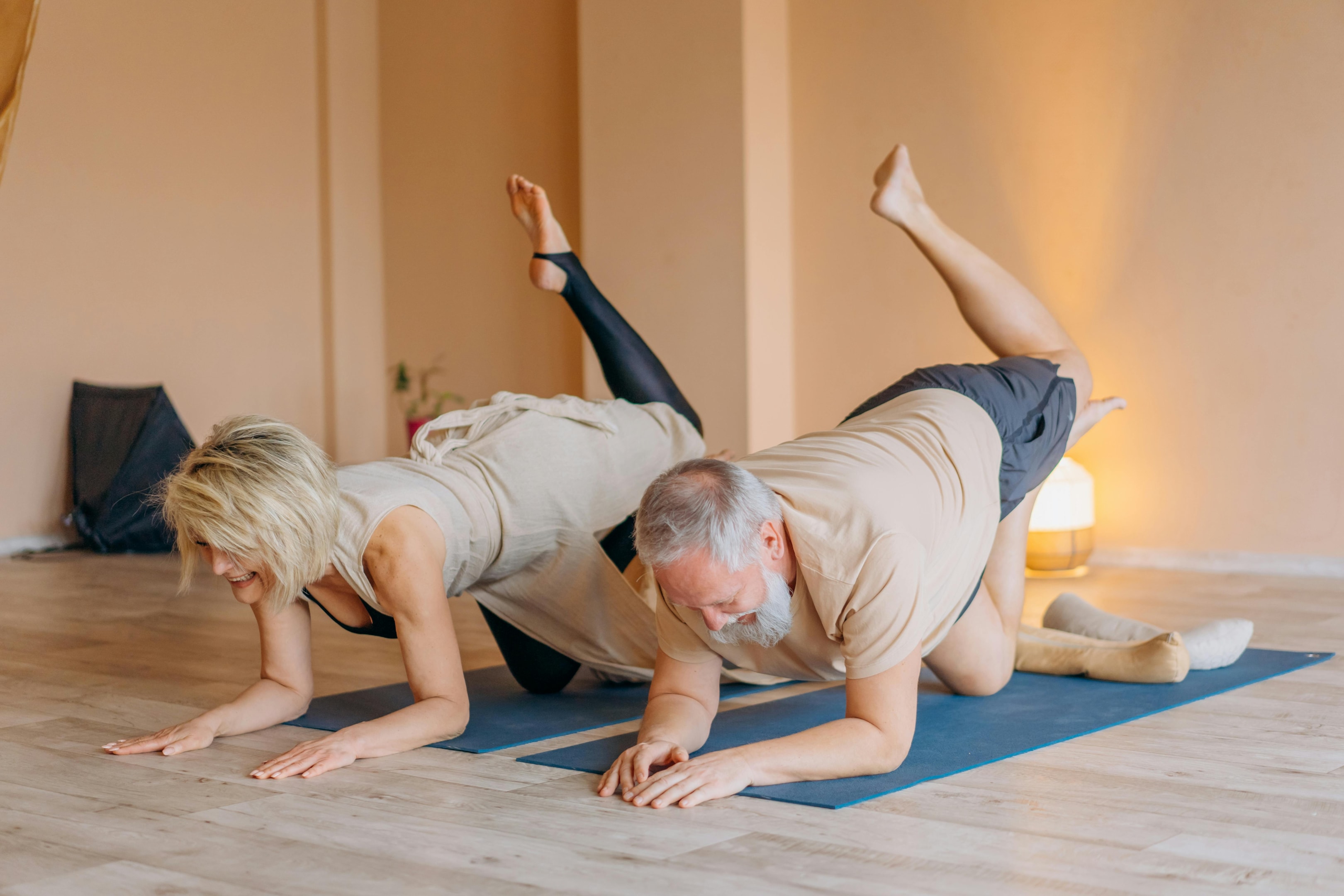Artificial Light
Artificial Light and Unplugging for Better Health: Boost Sleep and Well-Being
Are you struggling to get quality sleep and improve your overall health? The impact of artificial light and constant screen time could be the culprits. In this article, we’ll explore how reducing exposure to artificial light and unplugging for better health from technology can lead to better sleep and enhanced well-being. You’ll learn about the effects of blue light, the benefits of stepping away from screens, and practical tips to achieve a healthier lifestyle.
Key Takeaways
- Artificial light, especially blue light from screens, disrupts sleep and can lead to health issues like anxiety and depression.
- Unplugging from technology improves sleep quality, reduces stress, and enhances social connections.
- Creating a relaxing bedtime routine, using blue blocking tools, and maximizing natural light can significantly boost sleep and overall well-being.
The Impact of Artificial Light on Health
Artificial light, especially blue light from screens, can wreak havoc on your health. It disrupts your natural sleep-wake cycle, known as circadian rhythms, making it difficult to achieve restful sleep and leading to various mental and physical health issues.
Recognizing these impacts is essential for reclaiming your nights and boosting your well-being.
Circadian Rhythms Disruption
Circadian rhythm is the body’s internal clock, regulating sleep patterns and other physiological processes. Exposure to artificial light, particularly blue light, confuses the brain’s suprachiasmatic nucleus, the part of the brain responsible for these rhythms. This disruption leads to poor sleep quality, making it difficult to fall asleep and stay asleep.
Exposure to bright screens and artificial lighting in the hours leading up to bedtime interferes with melatonin production, the hormone that signals sleep time. When melatonin production is hindered, sleep suffers, leading to fatigue and mood disorders. Creating a sleep-friendly environment by reducing blue light exposure can significantly improve sleep quality and overall health.
Chronic exposure to artificial light at night disrupts circadian rhythms, potentially causing long-term health issues like depression and cognitive fatigue. Protecting your circadian rhythms can lead to improved sleep patterns and enhanced well-being.
Blue Light Exposure and Sleep Quality
Blue light, emitted by digital devices and fluorescent lights, is a significant disruptor of sleep quality. This type of light decreases melatonin production, making it harder to fall asleep and stay asleep. The result? Poor sleep quality and increased daytime fatigue.
Night mode on devices reduces blue light exposure by displaying warmer tones, which are less disruptive to sleep. Blue blocking glasses can also mitigate blue light effects, improving sleep quality and reducing eye strain.
Light-adjusting apps like f.lux, which alter screen color temperature based on time of day, help reduce blue light and maintain a healthier sleep cycle. These steps can enhance sleep quality and overall well-being.
Physical and Mental Health Effects
Exposure to artificial light doesn’t just affect sleep; it has broader implications for physical and mental health. Poor sleep quality due to disrupted circadian rhythms can lead to brain fog, mood swings, and cognitive fatigue. Over time, these issues can escalate, contributing to anxiety and depression.
Constant exposure to screens and artificial light can also lead to information overload, making it difficult to concentrate and make decisions. Reducing artificial light exposure enhances mental clarity, improves mood, and supports better mental health.
Maximizing natural light during the day and creating a dark, restful environment at night can significantly boost your overall well-being.
Benefits of Unplugging from Technology
Unplugging from technology offers numerous benefits, including improved sleep quality and reduced stress. Stepping away from digital life enhances mental and physical health, fosters connections with loved ones, and brings joy through offline activities.
Let’s explore these benefits in more detail.
Improved Sleep Patterns
Unplugging from electronic devices before bed enhances sleep patterns and quality. Without blue light interference, melatonin production increases, preparing your mind for restful sleep. Athletes Kitchen recommends unplugging 2-4 hours before bedtime for maximum benefit.
Establishing a tech-free zone in your bedroom can create a more restful environment, making it easier to fall asleep and stay asleep. Incorporate relaxing activities like reading or practicing yoga to help your body transition into sleep mode, especially if you experience difficulty falling asleep.
These small changes can lead to deeper, more restorative sleep and better mental health overall.
Reduced Stress and Anxiety
A break from technology significantly reduces stress and anxiety. Constant screen time elevates stress hormones, contributing to anxiety. Outdoor activities like walking or gardening elevate mood and stimulate the senses, promoting relaxation and mental clarity.
Mindfulness practices, such as deep breathing exercises and progressive muscle relaxation, can further aid in reducing stress. Unplugging and focusing on these activities can lower blood pressure and improve overall mental health.
These practices not only enhance relaxation but also contribute to better sleep quality and reduced eye strain.
Enhanced Social Connections
Unplugging from the digital world enhances social connections and relationships. Without social media distractions, you engage more meaningfully with loved ones, strengthening bonds and reducing stress through a digital detox.
Face-to-face interactions and quality time with family and friends lead to a greater sense of fulfillment and well-being.
Strategies for Reducing Artificial Light Exposure
Reducing artificial light exposure is essential for better sleep and overall health. Implementing strategies like using night mode, wearing blue blocking glasses, and creating tech-free zones can make a significant difference.
Let’s dive into these strategies in more detail.
Use Night Mode and Blue Blocking Glasses
Night mode, available on most digital devices, alters the screen to display warmer tones, reducing blue light exposure and mitigating its negative effects on sleep quality while also filtering out the blue spectrum.
For those who need to use electronic devices before bed, blue blocking glasses can further reduce blue light exposure and eye strain. These small adjustments can significantly improve sleep quality and overall well-being.
Create a Tech-Free Bedroom
A tech-free bedroom creates a more restful environment and enhances sleep quality. Start by setting a digital curfew and removing electronic devices from the bedroom.
Placing your phone across the room can significantly reduce technology’s interference with rest.
Embrace Natural Light
Natural light regulates sleep and enhances mood. Daytime exposure to natural daylight helps balance circadian rhythms and boosts well-being. Maximize natural light by spending time outdoors, opening blinds, and arranging your workspace near a window.
In the evening, minimize artificial light by dimming lights and using red or orange light for reading. These steps reduce eye strain and improve sleep quality, leading to better mental and physical health.
Alternative Activities to Digital Devices
Engaging in activities away from digital devices promotes relaxation and well-being. Taking a break from screens boosts mood, improves focus, and reduces eye strain.
Let’s explore some fulfilling offline activities.
Practice Yoga and Meditation
Yoga and meditation enhance mental and physical well-being. Regular practice reduces stress levels, improves mental clarity, and promotes relaxation.
These activities foster a deeper connection with yourself and others, providing a healthy alternative to screen time.
Read or Engage in Hobbies
Reading and engaging in hobbies are excellent alternatives to technology use. These activities enhance focus, reduce eye strain, and promote better mental health.
Whether you enjoy painting, knitting, or playing a musical instrument, a fulfilling hobby provides a much-needed break from digital devices.
Spend Time Outdoors
Spending time outdoors improves physical and mental health. Natural light exposure balances circadian rhythms and boosts mood, while activities like walking or gardening enhance well-being.
Incorporating outdoor time into your daily routine effectively reduces screen time and improves overall health.
Creating a Relaxing Bedtime Routine
A relaxing bedtime routine is key to improving sleep quality. Engaging in offline activities and creating a calm environment signals to your brain that it’s time to prepare for sleep.
Let’s explore some effective steps.
Set a Consistent Sleep Schedule
A consistent sleep schedule regulates your body’s internal clock, leading to better sleep quality and overall well-being. Going to bed and waking up at the same time every day improves sleep patterns, enhances mood, and supports better mental health.
Limit Bright Lights Before Bed
Limiting bright light exposure before bed improves sleep quality. Turn off electronics 2-3 hours before bedtime and use red or orange light for reading to minimize melatonin disruption.
These changes can significantly enhance sleep quality and overall well-being.
Use Eye Masks and Blackout Curtains
Eye masks and blackout curtains create a dark, restful environment, enhancing sleep quality. Sleep masks block out light, while blackout curtains darken the room, creating an optimal environment for sleep.
Combining these tools significantly improves your sleep experience.
Incorporating Mindfulness and Relaxation Techniques
Mindfulness and relaxation techniques in your daily routine improve sleep and overall well-being. Engaging in offline activities and focusing on relaxation enhances mental clarity and reduces stress.
Let’s explore some effective techniques.
Deep Breathing Exercises
Deep breathing exercises reduce stress and promote relaxation. Techniques like the 4-7-8 method, involving inhaling for 4 seconds, holding for 7 seconds, and exhaling for 8 seconds, significantly reduce tension and calm the mind.
Incorporating deep breathing into your daily routine, such as during breaks or before bed, helps manage stress and improve overall well-being.
Progressive Muscle Relaxation
Progressive muscle relaxation systematically tenses and relaxes muscle groups to alleviate physical tension and stress. This technique releases built-up tension in the body, improving sleep quality and promoting deeper relaxation.
Regular practice of progressive muscle relaxation enhances both physical and mental well-being.
Guided Imagery
Guided imagery, a visualization technique, involves creating calming mental images to promote relaxation and mental clarity. This practice reduces stress levels and facilitates a smoother transition to sleep.
Incorporating guided imagery into your bedtime routine enhances sleep quality and overall well-being.
Summary
In conclusion, artificial light and technology use can significantly impact sleep quality and overall health. By understanding the effects of artificial light on circadian rhythms and taking steps to reduce exposure, you can improve sleep patterns and mental well-being. Unplugging from technology offers numerous benefits, including reduced stress, improved social connections, and better sleep.
By implementing practical strategies like using night mode, creating tech-free zones, and embracing natural light, you can create a sleep-friendly environment. Engaging in alternative activities such as yoga, meditation, reading, and spending time outdoors can further enhance relaxation and overall health. Establishing a consistent sleep schedule and incorporating mindfulness techniques can help you achieve deeper, more restorative sleep. Take these steps to unplug and boost your well-being.
Frequently Asked Questions
How does blue light exposure affect sleep quality?
Blue light exposure can seriously mess with your sleep by reducing melatonin production, which makes it tough to fall and stay asleep. It’s best to limit screen time before bed for a better night’s rest.
What are some effective strategies for reducing artificial light exposure before bed?
To cut down on artificial light before bed, try using night mode on your devices, wearing blue blocking glasses, and dimming lights in the evening. Creating a tech-free bedroom can really help you wind down too!
How can unplugging from technology improve mental health?
Taking a break from technology can seriously boost your mental health by cutting down on stress and anxiety, while also helping you connect better with others. So, give yourself some tech-free time to feel more relaxed and clear-headed!
What are some alternative activities to digital devices that can promote relaxation?
Practicing yoga and meditation, reading a good book, diving into your hobbies, or simply spending time outdoors are great ways to unwind without screens. You’ll definitely feel more relaxed afterwards!
How can establishing a relaxing bedtime routine improve sleep quality?
Establishing a relaxing bedtime routine can really boost your sleep quality because it signals your brain to unwind and get ready for rest. Just stick to a consistent schedule, dim the lights, and create a cozy atmosphere, and you’ll likely drift off more easily!





